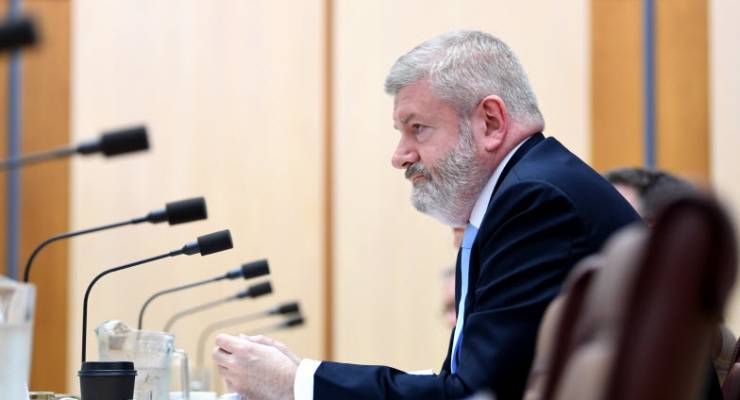
Communications Minister Mitch Fifield has joined the Prime Minister in appealing an Office of the Australian Information Commissioner decision ruling that he must release his diary.
Crikey sought access to the first three months of Fifield’s diary in his time as Comms Minister in 2015 to find out with whom the minister had been speaking during his first months in the office. Fifield’s office refused this request at the start of January 2016, but last month Information Commissioner Timothy Pilgrim overturned this decision and ordered Fifield’s office to hand over the 15 pages of the diary.
The minister’s office threw up every excuse it could to attempt to block the diary, from stating the office was too busy to saying diary events would give away cabinet discussions to saying Fifield’s safety would be at risk to saying that releasing the diary would disclose the business affairs of people Fifield had met with (that’s the point). All excuses were thoroughly rejected.
As the deadline to appeal the decision passed last week with no notification of an appeal, Crikey asked Fifield’s office on Monday about when the diary would be released. Late on Monday night, the minister’s office stated that an appeal had been filed “by the due date”.
The case will now go before the Administrative Appeals Tribunal for deliberation, and it will become the third case of the Abbott-Turnbull government ministers attempting to block transparency over their diaries to go before the tribunal. Attorney-General George Brandis is now risking contempt of court for his failure to process an FOI request from 2014 from shadow attorney-general Mark Dreyfus for his diary after losing out in the AAT and the courts. Prime Minister Malcolm Turnbull is also fighting the release of just one day of his diary to The Australian.
An appeal to the AAT carries with it an $884 fee for the government, as well as ongoing costs to taxpayers for the minister’s office to pay corporate lawyers to argue the case.
Crikey asked Fifield’s office why it was appealing the decision, but we did not hear back by deadline.
The transparency-shy government has come under criticism in Senate estimates this week. On Monday, Labor’s leader in the Senate Penny Wong questioned the Department of Prime Minister and Cabinet over the Prime Minister’s Office’s failure to retain Wickr messages sent between Turnbull and former prime minister Kevin Rudd related to the latter’s pursuit for the UN top job. PM&C officials were unable to answer why the messages would no longer be available for FOI. Attorney-General George Brandis suggested that Wickr messages, unlike SMS or email, might not have to be retained in order to be compliant with the Commonwealth Archives Act, meaning it would be fine to delete the messages. He suggested that the act was written well before the advent of apps like Wickr, although the rules around the retention of documents and freedom of information law are designed to be technology-neutral.
The Department of Immigration and Border Protection also complained of a lack of staff to process applications to the department. Last year it received more than 23,000 FOI requests, making up around 60% of all FOI requests sent to Commonwealth departments and agencies.








Because they do not want us to know who they see I would imagine.
Can the Court reel the AG in for contempt soon, please. He has demonstrated contempt on so many occasions, the witholding of the diary may be witholding of evidence in a most serious matter. Enough.
A Minister’s diary should be public knowledge, in real time. It doesn’t have to say what was talked about, just who and when and their affiliations, or who they lobby for.
One might have thought that they’d be proud to show off a well overstuffed diary as evidence of their hard work and meeting KPIs?
Come on boyz, remember what you’re always preaching to us :- “If you’ve done nothing wrong, you’ve got nothing to hide”?
But this applies only to the Indians not the chiefs.